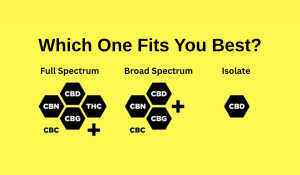Hepatitis C is a viral infection that causes liver inflammation. Since symptoms can take decades to appear, many are unaware they have this condition. This disease is usually transmitted through infected blood that has entered another person’s bloodstream. CBD has been found to show some antiviral properties. Also research has found that CBD was able to reduce the growth of the hepatitis C virus.
Hepatitis C is a global health concern. It incurs inflammation of the liver which can eventually lead to major complications, including liver failure. However, many people are unaware they have this condition, as the symptoms can take decades to appear.
There is currently no vaccination for hepatitis C. This makes it critical to develop a wide range of therapies and treatments to stymie its spread. One such candidate is CBD. Found in cannabis, CBD is not psychoactive like its cannabinoid cousin, THC. However, research has demonstrated its efficacy through repeated studies and trials. To better understand whether CBD can make an impact on hepatitis C, we’ll need to look at the science behind this condition, the current state of treatments, and how CBD’s unique characteristics.
Both the acute and chronic forms of hepatitis C are caused by the hepatitis C virus. It’s usually transmitted through infected blood that has entered another person’s bloodstream. Healthcare workers, intravenous drug users, children born from infected mothers, and those living in unsanitary conditions are all at risk of infection. Additionally, people born between 1945 and 1965 are the age group with the highest risk.
The best treatment is prevention. Ceasing the use of all intravenous drugs, choosing licensed and sanitary tattoo or piercing parlors, and practicing safe sex are all effective ways of reducing your odds of being infected.
If you become infected, there are treatments – antiviral medications, for example. Typically, this treatment involves the infected person taking the medication orally every day for two to six months.
However, if the infection goes untreated, it can result in severe complications, such as liver damage. People who develop cirrhosis (scarring of the liver) or liver disease as a result of chronic hepatitis C may be candidates for a liver transplant.
Some studies have found CBD to have antiviral properties. This is likely due to its role in the endocannabinoid system. This bodily system helps to regulate a whole host of processes and system functions, such as the immune system.
Indeed, other research has found that CBD was able to reduce the growth of the hepatitis C virus by 86%. CBD may also help quell some of the symptoms of hepatitis C, such as nausea and itchy skin.
If you believe you’ve been exposed to hepatitis C, it is essential to seek the advice of a doctor. They can properly diagnose you and prescribe the best treatments for your condition and lifestyle.

Explore this cbd consumption methods tutorial and follow the step-by-step process to select, use, and verify the safest ways to consume CBD for wellness.
Read More
Learn what CBD edibles are, their main types, expected effects, legal status, safety factors, and how they compare to other forms of CBD.
Read More
Therapeutic Uses of CBD Managing Chronic Pain with CBD Struggling with chronic pain? CBD might help. Studies suggest it can reduce inflammation and alleviate discomfort,...
Read More
Just as CBD may help humans due to its interaction with the body’s endocannabinoid system, the same is true of dogs. CBD has the potential...
Read More
Cannabis has been used for millennia to treat numerous health conditions. Current research offers promising results on the effects of CBD oil on breast cancer.
Read More
What Is CBD for Cats? CBD (Cannabidiol) is a natural compound from hemp. It’s non-psychoactive, meaning your cat won’t get “high.” Instead, it works with...
Read More
1. Understanding Neuropathic Pain Neuropathic pain results from nerve damage or dysfunction, causing symptoms like burning, tingling, or sharp shooting pains. Common Causes: Symptoms Include:...
Read More
CBD for Pets: A Pet Parent’s Guide to Dosage We all want the best for our pets, especially when they’re struggling with pain, anxiety, or...
Read More
What Is Lupus? Lupus is a long-term autoimmune condition that can impact multiple organs, including the skin, heart, lungs, and kidneys. The most common type...
Read More
1. Full-Spectrum CBD: The All-In-One Option What it is: Contains CBD, minor cannabinoids, terpenes, flavonoids — and less than 0.3% THC. Why choose it: Promotes...
Read More